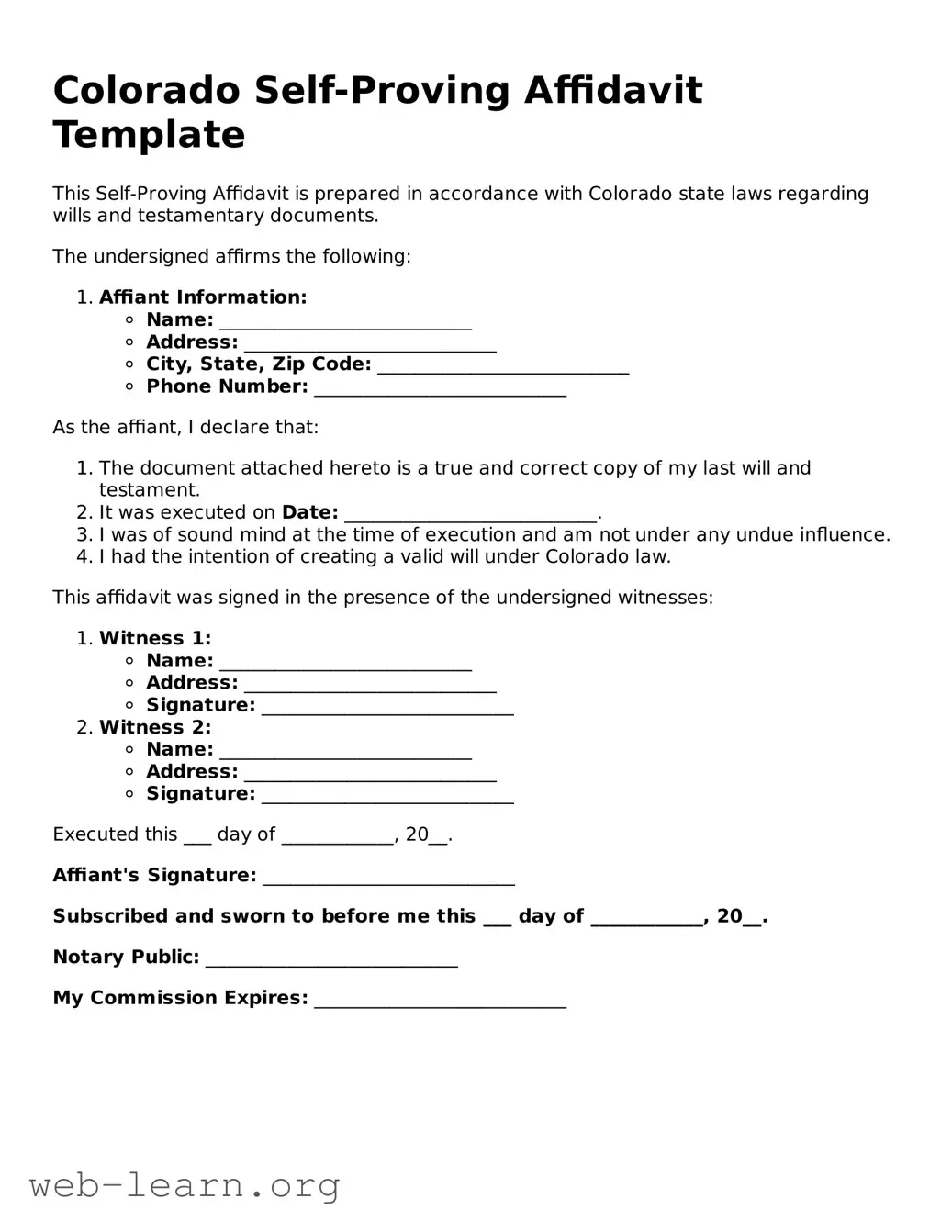Colorado Self-Proving Affidavit Template
This Self-Proving Affidavit is prepared in accordance with Colorado state laws regarding wills and testamentary documents.
The undersigned affirms the following:
- Affiant Information:
- Name: ___________________________
- Address: ___________________________
- City, State, Zip Code: ___________________________
- Phone Number: ___________________________
As the affiant, I declare that:
- The document attached hereto is a true and correct copy of my last will and testament.
- It was executed on Date: ___________________________.
- I was of sound mind at the time of execution and am not under any undue influence.
- I had the intention of creating a valid will under Colorado law.
This affidavit was signed in the presence of the undersigned witnesses:
- Witness 1:
- Name: ___________________________
- Address: ___________________________
- Signature: ___________________________
- Witness 2:
- Name: ___________________________
- Address: ___________________________
- Signature: ___________________________
Executed this ___ day of ____________, 20__.
Affiant's Signature: ___________________________
Subscribed and sworn to before me this ___ day of ____________, 20__.
Notary Public: ___________________________
My Commission Expires: ___________________________
